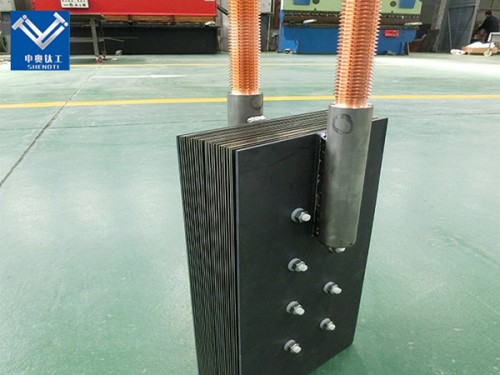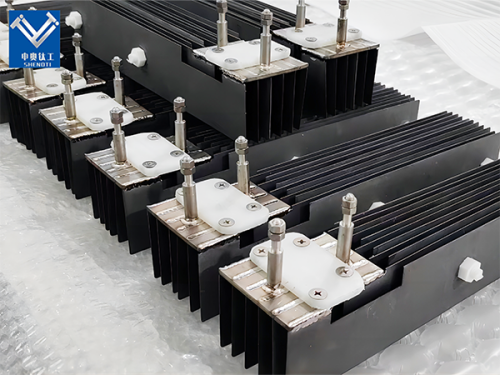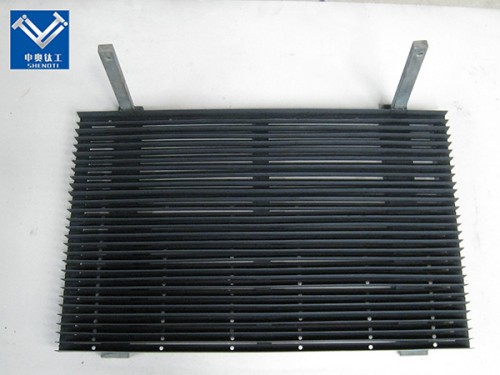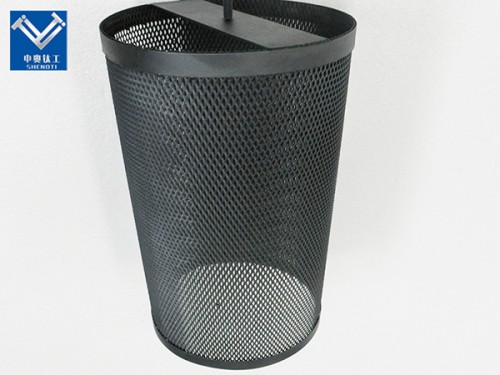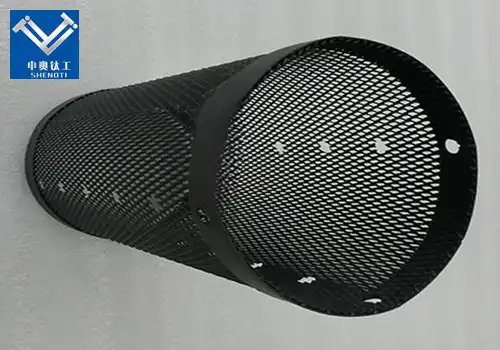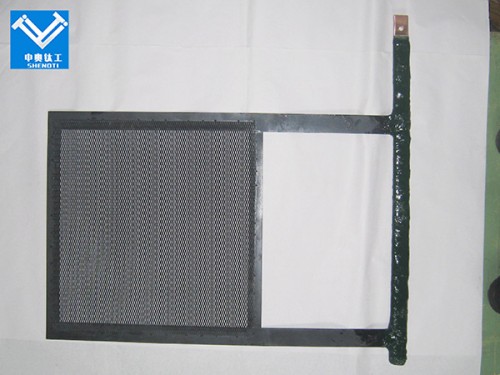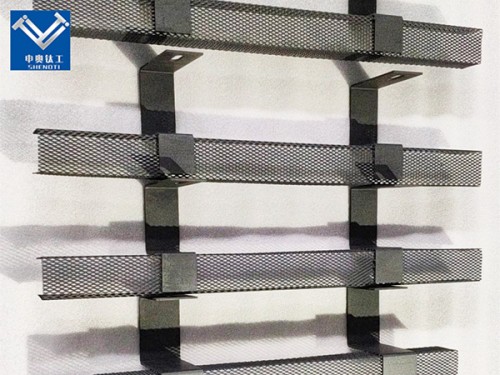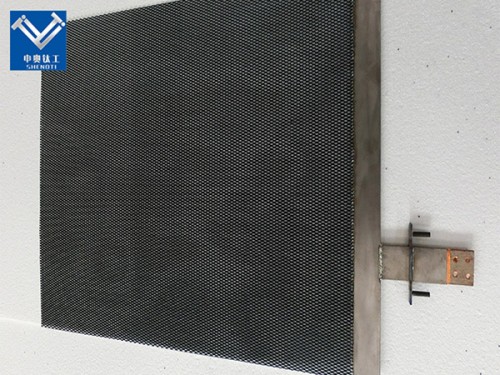
Why Are Titanium Anodes Essential in Water Treatment?
2025-08-22 16:15:14
Water treatment technology is evolving rapidly, and one of the most critical innovations shaping the industry today is the use of titanium anodes for water treatment. With their outstanding durability, high electrochemical performance, and long service life, titanium anodes have become the cornerstone of modern electrochemical treatment systems. From municipal wastewater plants to industrial effluent treatment facilities, titanium anodes deliver efficient, sustainable, and cost-effective solutions for ensuring clean and safe water.
What Are Titanium Anodes for Water Treatment?
Titanium anodes for water treatment are electrochemical electrodes designed to perform oxidation and disinfection reactions in aqueous environments. These anodes typically consist of a titanium substrate coated with mixed metal oxides (MMO), platinum, or other catalytic materials that enhance conductivity and corrosion resistance.
Unlike traditional graphite or lead-based anodes, titanium anodes offer superior performance and longevity. They can withstand harsh environments, including highly acidic or alkaline conditions, without losing efficiency. This makes them particularly suitable for demanding water treatment applications.
Key Characteristics of Titanium Anodes:
High corrosion resistance in electrolytic conditions.
Long operational lifespan, reducing replacement costs.
Low operating voltage, ensuring energy efficiency.
Excellent current distribution, guaranteeing uniform treatment.
Why Are Titanium Anodes Essential in Water Treatment?
Electrochemical treatment processes rely heavily on the quality of electrodes. The introduction of titanium anodes for water treatment has revolutionized the industry by enabling more sustainable, reliable, and eco-friendly processes.
1. Effective Disinfection
Titanium anodes generate powerful oxidizing agents such as chlorine, ozone, and hydroxyl radicals directly in the water. These active species eliminate harmful bacteria, viruses, and organic contaminants without the need for hazardous chemicals.
2. Cost Efficiency
Because of their low energy consumption and long lifespan, titanium anodes lower the overall cost of water treatment. Operators benefit from reduced maintenance, fewer replacements, and decreased downtime.
3. Environmental Sustainability
Titanium anodes eliminate the need for excessive chemical dosing, thus minimizing secondary pollution. This makes them ideal for industries seeking to align with green technology and regulatory compliance.
Applications of Titanium Anodes for Water Treatment
1. Municipal Wastewater Treatment
Cities worldwide rely on titanium anodes for water treatment to purify sewage and prevent contamination of natural water bodies. These anodes ensure consistent quality while meeting strict environmental regulations.
2. Industrial Effluent Treatment
Industries such as pharmaceuticals, petrochemicals, textiles, and mining generate wastewater with complex contaminants. Titanium anodes effectively break down persistent organic pollutants, heavy metals, and toxic chemicals.
3. Swimming Pool Disinfection
Instead of using chlorine tablets or liquid bleach, swimming pool operators increasingly use titanium anode systems to generate chlorine in situ, ensuring safer, cleaner, and more cost-effective pool water management.
4. Desalination and Seawater Treatment
Titanium’s natural resistance to corrosion makes it an excellent material for electrodes used in seawater electrolysis, desalination, and marine water treatment applications.
5. Recycling and Reuse Systems
With the growing emphasis on water reuse, titanium anodes enable advanced oxidation processes (AOPs) that treat and recycle greywater, cooling water, and industrial effluents.
Technical Advantages of Titanium anodes for water treatment
1. Long Service Life
One of the most significant benefits of titanium anodes for water treatment is their long lifespan. In many systems, they can last more than 10 years without significant degradation, reducing lifecycle costs.
2. High Electrochemical Stability
Titanium anodes provide stable operation even under high current density and aggressive electrolyte conditions, ensuring reliable system performance.
3. Energy Efficiency
Due to their low overpotential for oxygen and chlorine evolution reactions, titanium anodes require less electrical energy, which translates into cost savings for operators.
4. Customizable Design
Manufacturers can design titanium anodes in various shapes and sizes (mesh, plate, tubular) to fit specific reactors, electrolyzers, and water treatment systems.
itanium anode industry for water treatment
1. Pharmaceutical Industry
Ensures the removal of complex organic molecules and residues.
2. Textile Industry
Breaks down dyes and chemicals resistant to biological treatment.
3. Mining and Metallurgy
Treats wastewater containing heavy metals and cyanides.
4. Food and Beverage
Provides safe disinfection without chemical additives.
5. Municipal Utilities
Delivers safe drinking water and meets environmental discharge standards.
Titanium anodes for water treatment represent the future of sustainable water purification. Their unmatched durability, electrochemical efficiency, and adaptability make them essential across industries and municipal systems. By integrating titanium anodes, operators achieve cleaner water, lower operational costs, and improved environmental compliance.
We are a leading manufacturer specializing in titanium anodes, mixed metal oxide (MMO) coated electrodes, and metal-clad plates for industrial applications. With decades of experience, advanced production technology, and global distribution, we provide tailored solutions for water treatment, electroplating, electrolysis, and chemical industries.
Contact Us
For more information about titanium anodes for water treatment or to request a customized solution for your project:
Email: zh@baojiti.com.cn
Company: Baoji City ShenAo Metal Materials Co., Ltd.
Website: www.shenaocladplate.com
YOU MAY LIKE











